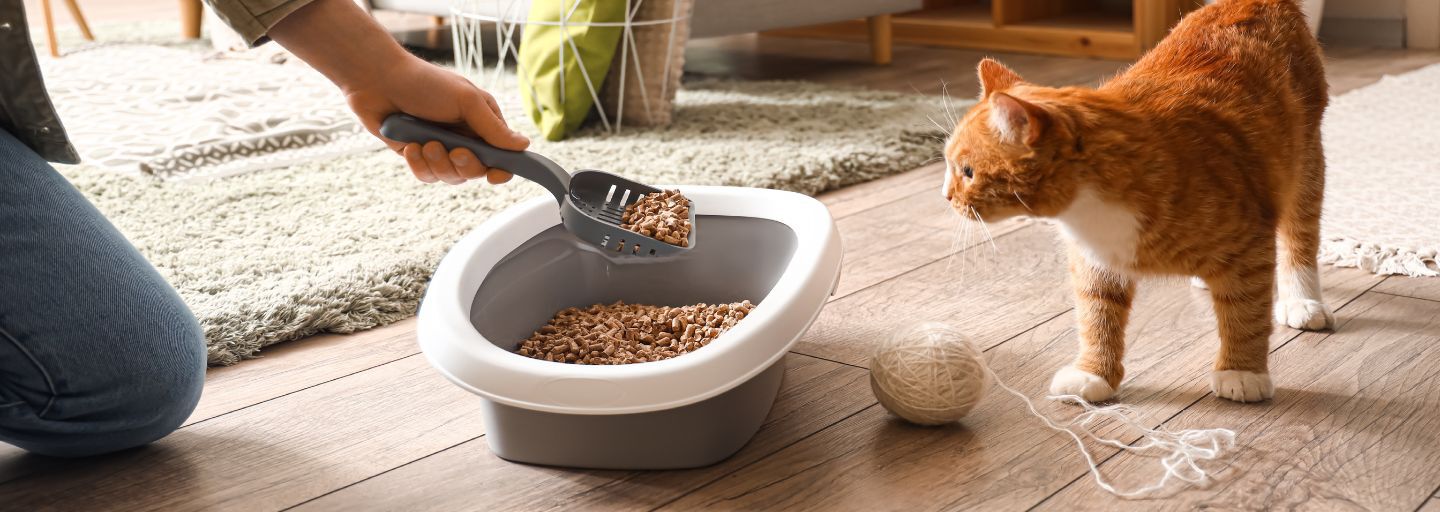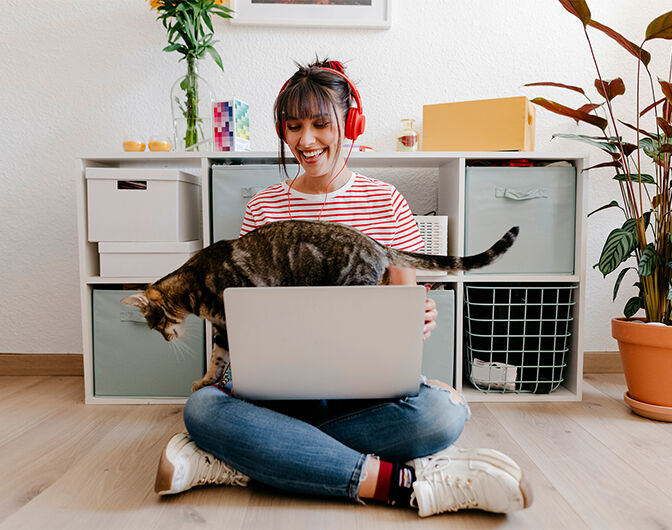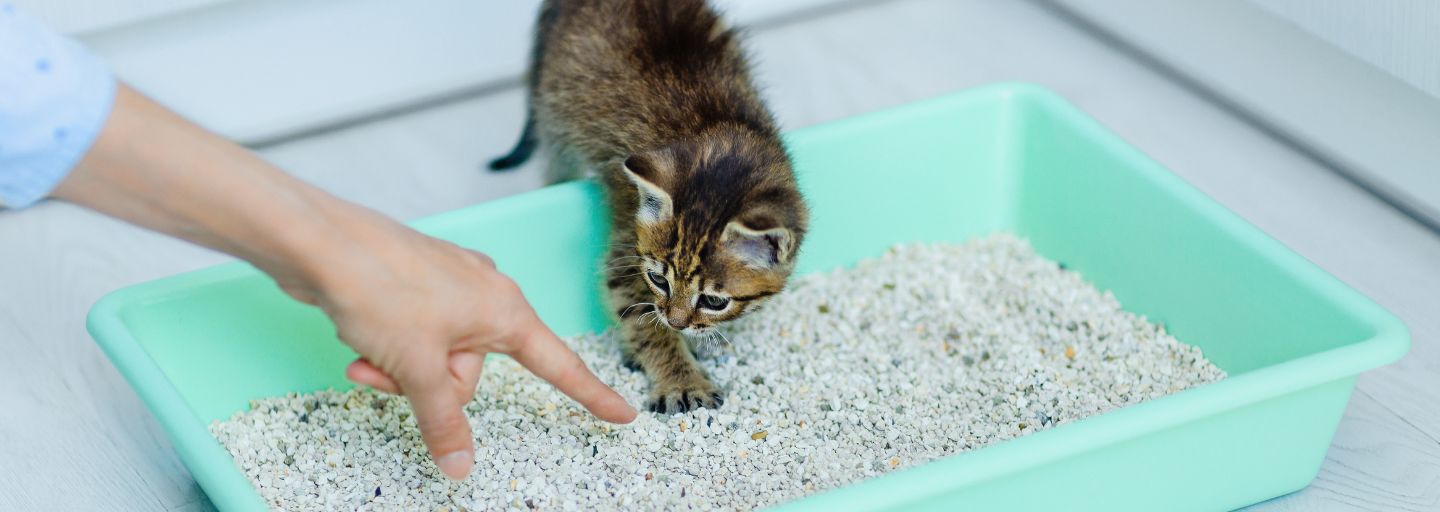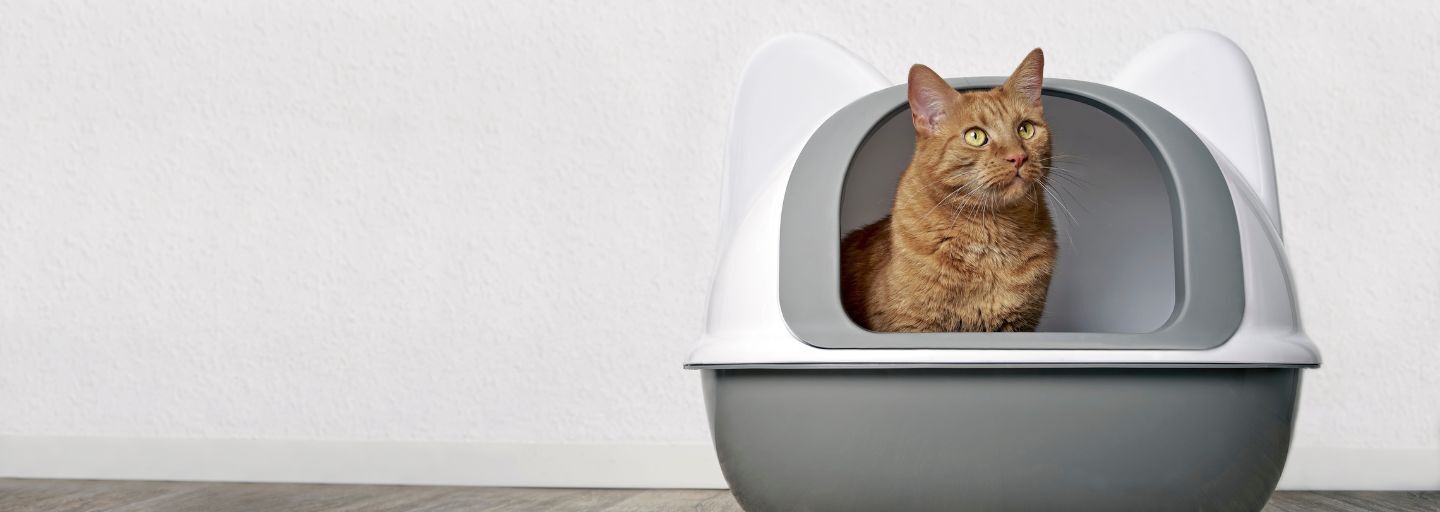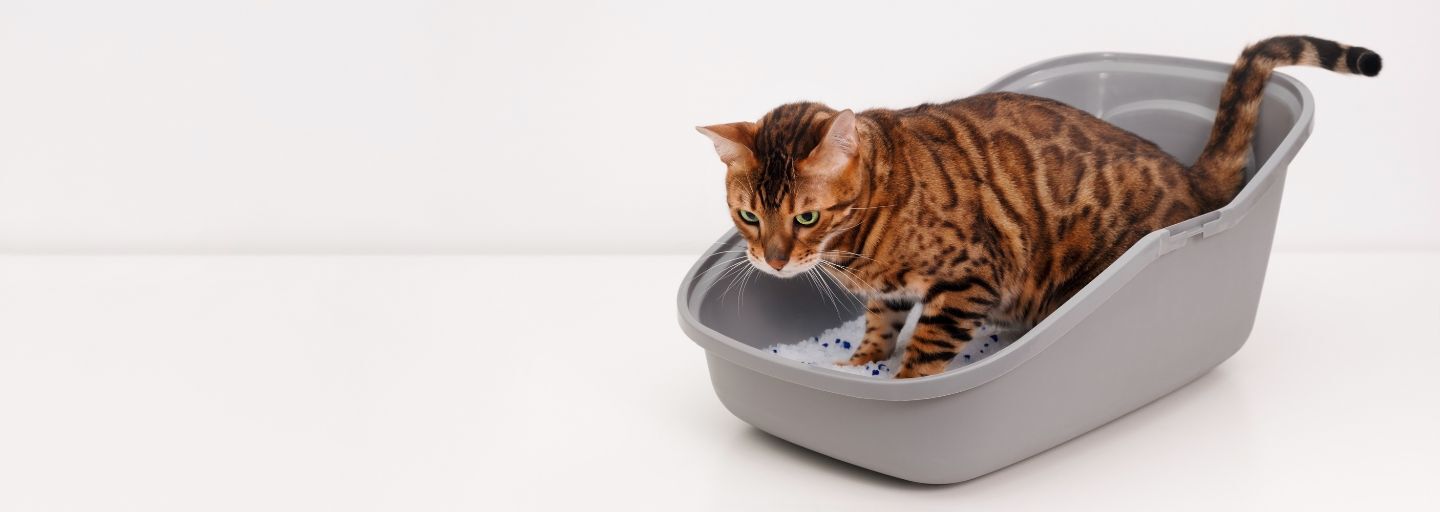Toileting is a natural function in any cat’s kitten’s life. Urination and defecation help rid their bodies of waste products and also allow them to mark their territory, which helps them feel secure in their environment.
For kittens, toileting problems may stem from incomplete litter training, fear or confusion about their environment, or medical conditions such as parasites or urinary tract infections. They’re still learning, and even small disruptions can throw off their routine.
Older cats, on the other hand, may develop toileting issues due to a broader range of factors including age-related health problems like arthritis (which can make it painful to climb into a litter box), or cognitive decline, which may affect their ability to remember where the litter box is. Stress, territorial disputes, or changes in household dynamics can also lead to inappropriate toileting behaviours at any age.
Common Reasons for Toileting Issues in Kittens
- Kittens may have toileting problems for several reasons, including:
- Litter Box Problems: A dirty, poorly placed, or improperly sized litter tray can deter your kitten from using it.
- Health Issues: Conditions like urinary tract infections, parasites, or digestive upset can lead to inappropriate toileting.
- Stress: Changes in environment, routine, or social dynamics can cause anxiety, leading to toileting issues.
- Incomplete Training: Young kittens may not yet understand where or how to use the litter box consistently.
Toileting issues in adult and senior cats can be more complex and often stem from:
- Medical Conditions: Chronic illnesses such as kidney disease, diabetes, hyperthyroidism, or urinary tract infections can affect toileting habits.
- Arthritis or Mobility Issues: Painful joints may make it difficult for older cats to climb into or reach their litter box or tray.
- Cognitive Decline: Senior cats may experience confusion or forgetfulness due to feline cognitive dysfunction (similar to dementia).
- Territorial Stress: Changes in household dynamics, such as new pets or moving house, can trigger stress-related toileting behaviours.
What to do next?
For kittens:
- Check for Stressors: If toileting occurs near windows or doors, your kitten may be reacting to outdoor disturbances. Look for triggers like other animals, loud noises, or unfamiliar people.
- Litter Box Cleanliness: Peeing or pooping next to the tray or box may signal that it’s too dirty or too small. Clean it daily and ensure it’s spacious enough for your kitten to turn around comfortably.
- Guest Visits: Toileting around the house when guests are present may indicate stress. Gradually introduce your kitten (link to https://www.purina.com.au/introducing-your-kitten-to-family.html) to new people in a calm, controlled way.
- Personal Items: Toileting on your belongings can be a sign of separation anxiety (link to Identifying Separation Anxiety in Kittens - Purina). Help your kitten adjust by practicing short periods of separation and offering comfort items.
For older cats:
- Vet Check: Always rule out medical causes first. Conditions like arthritis, kidney disease, or urinary tract infections can cause sudden toileting changes.
- Accessible Litter Box: Use low-sided boxes for easier access and place them in quiet, familiar areas. Consider adding extra boxes in multiple locations.
- Soft Litter: Older cats may prefer softer litter that’s gentle on sore paws. Avoid scented or dusty varieties that may irritate them.
- Routine and Familiarity: Stick to a consistent feeding and cleaning schedule. Sudden changes can confuse or stress older cats.
- Environmental Comfort: Provide cozy, safe spaces and reduce household stressors. Pheromone diffusers or calming supplements may help ease anxiety.
